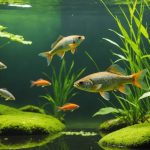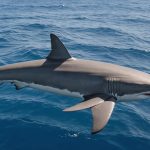Overview of Suitable Fish for UK Ponds
Finding the best fish for UK ponds involves understanding essential elements such as biodiversity and ecological balance. Biodiversity is crucial as it increases the resilience of a pond ecosystem; a diverse range of species can help maintain stability and reduce vulnerability to diseases and environmental changes. UK pond habitats, ranging from small garden ponds to larger natural settings, hold significant ecological importance. They support various life forms, from insects to birds, contributing greatly to local biodiversity.
Selecting fish species involves considering factors such as species compatibility and potential impacts on the pond ecosystem. Compatibility ensures that the fish can live harmoniously, without threatening one another or other wildlife. Indigenous species or those well-acclimated to UK climates are preferred to enhance the pond ecosystem without disrupting the natural balance.
Dans le meme genre : Exploring the UK”s Contribution to Global Initiatives for the Conservation of Migratory Shark Species
Criteria for selecting fish species include their adaptability to climate, size, feeding habits, and reproduction. It is essential to prioritize species that do not compete aggressively for resources or disrupt vegetation, ensuring a balanced and healthy pond environment. By wisely selecting fish for UK ponds, you actively contribute to enhancing local biodiversity and the ecological health of these serene water bodies.
Recommended Fish Species for UK Ponds
Selecting the appropriate fish species for a UK pond requires careful consideration regarding habitat needs, water conditions, and benefits to the ecosystem. Here, we discuss top fish species for enhancing the biodiversity of pond ecosystems.
Lire également : How UK Traffic Regulations Help Mitigate Roadkill Among Native Wildlife
Common Carp
Common Carp are excellent pond fish recommendations due to their adaptability. They thrive in various water conditions and tolerate a wide range of temperatures. To keep Carp healthy, ensure water pH levels remain between 6.0 to 8.0, and maintain temperature control. Carp are essential in fostering biodiversity, consuming algae, and encouraging clearer water.
Tench
Tench are revered for their ability to tolerate poor water conditions, making them suitable for almost any pond in the UK. These peaceful fish settle into nutrient-rich waters easily. They play a crucial role in maintaining pond health by grazing on plant debris. Direct sunlight is not needed; providing shaded areas is beneficial for Tench.
Goldfish
Goldfish have minimal habitat needs. They fit well in varying pond sizes, though ample space allows for more vigorous growth. Maintaining clean water is crucial, as Goldfish can be sensitive to pollutants. Goldfish benefit the pond ecosystem by contributing to nutrient cycling and supporting ecological balance. Proper care involves regular feeding and occasional water quality checks.
Environmental Compatibility Considerations
When engaging in fish care within the UK, it’s crucial to evaluate the environmental impact of your choices. Selecting between native and non-native species plays a significant role in fostering sustainable fishing practices. Native species are typically more harmonious with local ecosystems, as they co-evolved with the surrounding environment. Introducing non-native species, on the other hand, can lead to unintended ecological consequences, such as predation on native wildlife or competition for resources.
Understanding the ecological impact of introduced species is essential to mitigate such risks. When introduced, these species can disrupt existing food webs, alter habitats, and potentially lead to a decline in native population numbers. In some cases, they may even bring diseases that native species lack resistance to, further exacerbating their negative effects.
To uphold sustainable fishing practices and maintain balanced ecosystems, adhere to guidelines focusing on local biodiversity. Some best practices include:
- Researching and understanding the habits and needs of both native and non-native species in your local area.
- Prioritising native species to support local ecosystem balance.
- Monitoring and managing populations to ensure no single species over-populates or under-threatens the local environment.
By implementing these principles, enthusiasts can ensure fish care practices not only benefit the local environment but also thrive sustainably.
Fish Care and Maintenance Tips
Taking care of your pond fish in the UK requires consistent attention to detail to ensure a healthy pond ecosystem. Regularly monitoring the water quality is crucial. Essential parameters like pH levels, ammonia, nitrite, and oxygen need frequent checking. Adjustments may be necessary to maintain an environment conducive to your fish’s well-being.
Feeding practices vary seasonally, reflecting your fish’s changing dietary needs. During warmer months, when fish are more active, provide high-protein diets to support their energy levels. As temperatures drop, feeding should be reduced, switching to wheat germ-based foods, easily digestible in cooler conditions. This approach helps prevent uneaten food from clouding the water and affecting quality.
Preventative health measures are equally important for effective pond fish care. Regularly inspect your fish for visible signs of illness, such as unusual spots or behaviours. Quarantine new fish before introducing them to your pond to prevent disease spread. Also, ensure the pond is free from predators, which can stress the fish and impact their health.
By applying these fish maintenance tips, you ensure a thriving pond environment where your fish can flourish, promoting a balanced and serene aquatic ecosystem.
Potential Challenges in Pond Fish Introduction
Introducing fish to a pond comes with its own set of fish introduction challenges. One of the primary issues is the emergence of common diseases and parasites. Parasites such as Ich or fish lice can quickly spread, leading to severe health impacts. Proactively managing the pond’s conditions, such as regular water quality checks and quarantine periods, can maintain fish health and reduce the spread of diseases.
Equally crucial is pond ecosystem management, especially in balancing predator-prey relationships. It is vital to introduce fish species that coexist harmoniously without disrupting the overall pond environment. Predator fish like bass can occasionally be beneficial for controlling populations of smaller species but must be monitored to ensure they don’t overconsume.
Overpopulation is another concern that affects both the fish and the pond. Overcrowding can lead to depletion of resources, increased waste, and oxygen scarcity, directly impacting fish health. Effective strategies to counteract this include:
- Regular monitoring of fish populations
- Adjusting feeding practices
- Introducing natural predators in moderation
Through meticulous planning and ongoing challenges in fish care, it is possible to create a resilient and thriving pond ecosystem that sustains fish health and biodiversity.
Expert Advice and Resources
When it comes to pond management, consulting with local pond specialists is invaluable. These experts possess nuanced insights into the regional climate, water conditions, and local flora and fauna, factors crucial in maintaining a thriving pond ecosystem. Engaging with them can unlock tailored advice, ensuring the longevity and vitality of your aquatic environment.
To enrich your fish care knowledge, tapping into recommended books and online resources can be immensely beneficial. Renowned publications such as “The Pond Specialist” by Alan Bridgewater offer step-by-step guidelines on maintaining everything from water quality to fish health. Websites dedicated to aquatic life often provide rich content through blogs, forums, and webinars, serving as a treasure trove of information for both novice and seasoned pond enthusiasts.
Collaboration with local communities and sharing experiences is another excellent way to deepen your understanding. Joining local gardening clubs or ecology groups allows for the exchange of expert recommendations and successful practices. Here, you can learn from those who have managed similar ecosystems or have discovered innovative solutions to common pond-related challenges.
By leveraging the collective wisdom of experts, resources, and communities, pond enthusiasts can embark on a rewarding journey to cultivate flourishing aquatic environments.










